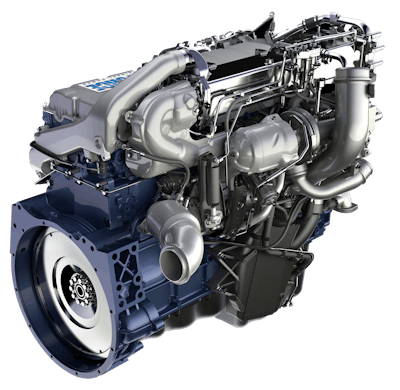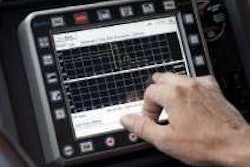
An interim final rule (IFR) issued in January allowed Navistar to pay fines and continue to sell the noncompliant engines. Mack Trucks and Volvo Group North America then sued EPA over the IFR, arguing, among other things, that the agency had failed to give adequate notice and opportunity for comment.
The three-judge U.S. Appeals Court for the District of Columbia on June 12 agreed, ruling that EPA didn’t meet any of the statutory criteria for issuing a “good cause” exception. The court said Navistar’s current financial situation wasn’t a proper justification for the EPA to issue the rule without following normal administrative procedures.
“The rule does not stave off any imminent threat to the environment or safety or national security,” Judge Janice Rogers Brown wrote for the court. “It does not remedy any real emergency at all, save the ’emergency’ facing Navistar’s bottom line.”
Navistar says it disagrees with the court’s ruling and will ask for a rehearing.

The ruling is at least a temporary win for Navistar’s competitors in the diesel engine market, all of which chose to use selective catalytic reduction technology (SCR) to achieve EPA’s NOx requirements. Navistar’s advanced exhaust gas recirculation (EGR) solution does not achieve those NOx emissions limits, but the company has been able to use banked emissions credits in order to comply with the regulations.
As Judge Brown put it, however, “Navistar’s day of reckoning is fast approaching: its supply of credits is dwindling and its engines remain noncompliant.” EPA issued the IFR after Navistar informed the agency in October 2011 that it might have as few as three or four months of available credits remaining. EPA’s rule allowed Navistar to continue to sell 2012 and 2013 EGR engines in the United States while paying a noncompliance fine of $1,919 per engine.
“Navistar will work with EPA to fully understand the ruling and its impact on the use of NCPs (non-compliant penalties) until a final rule is implemented,” the company said in a written statement. “At the same time, we will continue to cooperate with the EPA on the final Non-Compliance Rule and will continue to work with the EPA on our 0.2 gram NOx certification. Navistar continues to make and ship engines and our customers will continue to receive the products they ordered with EPA certified engines.”
Commenting on the ruling, Volvo Group spokesman John Mies said, “Volvo’s interest has always been ensuring a level playing field, so we’re pleased with this decision. Although it is unclear to us at this point what this ruling means for engines sold under the interim rule.”
A Daimler Trucks North America statement said, “The federal appeals court recognized the three major points cited by DTNA in the company’s filing in opposition to the EPA’s now vacated interim rule including, 1) the lack of due process and comment period prior to interim rule issuance, 2) that the decision to allow NCP’s in the first place is ‘likely inappropriate’ in this case, and (3) that the court is ‘highly skeptical that the penalty and upper limit provided for in this NCP satisfy this congressional demand to protect compliant manufacturers.’”
Navistar officials declined to comment further on the ruling.
The company’s stock fell 5.5 percent for the day in New York Stock Exchange composite trading, reported the San Francisco Chronicle. The shares have slid 28 percent this year after falling 35 percent last year.








